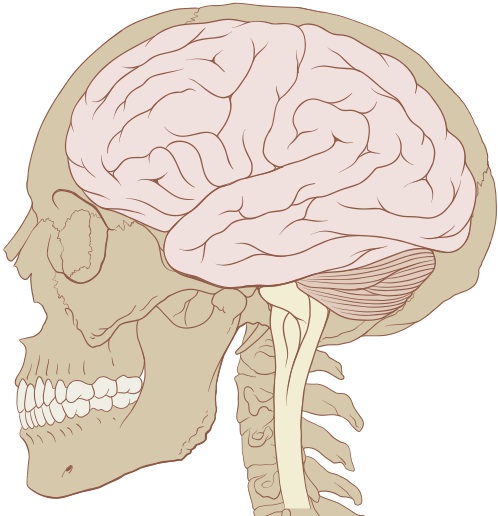Science News
Missing DNA Yields Big Brains
March 10, 2011

You lose a little DNA and all heck breaks loose.
Science news outlets are having a ball, reporting on an article published Nature this week, “Human-specific loss of regulatory DNA and the evolution of human-specific traits”, or as Sara Reardon writes in Science Now, “How Humans Got Spineless Penises and Big Brains”.
Researchers at Stanford wanted to find out why humans evolved to have certain attributes that our close relatives chimpanzees—with whom we share 96 percent of our DNA—do not. From Science Now:
… rather than looking at genes, as most research in the past has done, they examined DNA regions that don't code for genes but instead regulate how nearby genes are expressed.
Bingo! Comparing the genomes of several animals, the researchers discovered specific traits that distinguish humans can be attributed to the loss of chunks of DNA that control when and where certain genes are turned on. These regulatory DNA essentially are acting as a switch, turning genes on and off.
A specific gene turned on in mice, but turned off in humans, accounts for why human males, unlike most mammals, have spineless penises and no sensory whiskers.
Another gene switched on in mice and chimps but off in humans “suppresses the development of brain regions which in humans involve higher cognitive functions like conscious thought and language,” according to New Scientist. The authors of the study liken this to taking the developmental brakes off the brain and allowing it to grow larger. But the researchers also caution that this missing DNA is not the only factor that contributes to the evolution of our brain.
Sometimes to gain features, you have to lose others…
Image courtesy of Patrick J. Lynch, medical illustrator